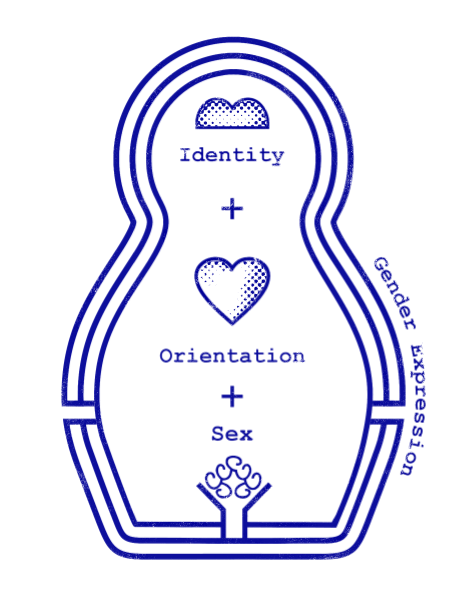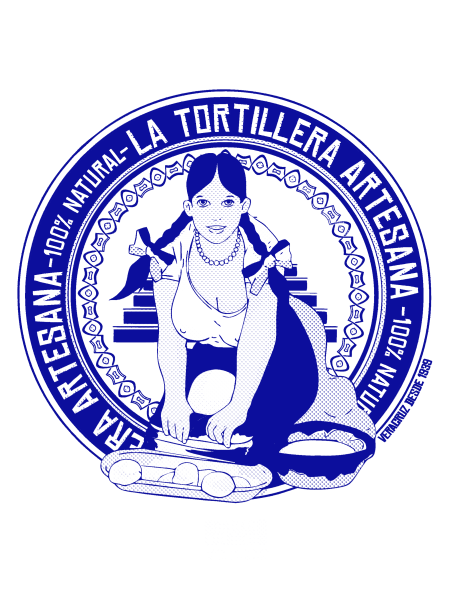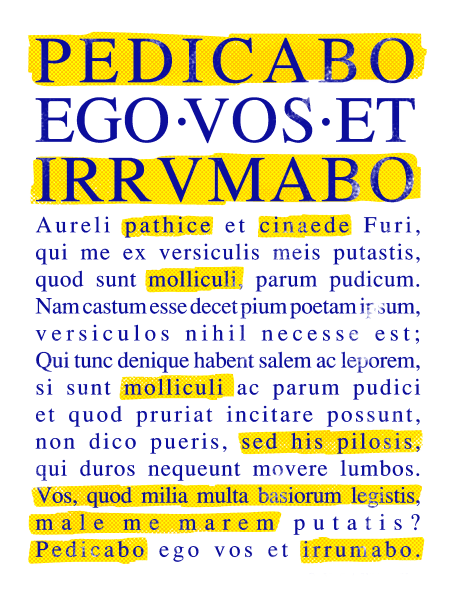Lesbian Dictionary English
How to say lesbian in English
Below are the words of our English Lesbian Dictionary that we will expand in new editions. If you know any more, please, contact us. But first some information about the language and this dictionary.
English is an Indo-European language spoken by over 500 million people and is official in more than 80 countries and territories. The national varieties of English, as well as Polari slang or Cockney rhyming slang, create specific words from particular regions and others that travel from one place to another while retaining its meaning or exchanging it for another similar or radically different.
The terms for lesbians are much less common than those used for gays, a fact that is related to the higher invisibility of the lesbian people in the past. No current term goes back before the 1920s. As it has happened in other countries like Finland, were known lesbian sex and women who looked like men, but it was not conceived that a woman could feel an emotional and erotic inclination for another woman. In this sense, from the 18th century, there are references to sex between women called “the game of flats”; as well as the known “Boston Marriage”, which refers to the relationship of two spinsters in the 19th century but have not found words to name those involved. The reasons for this may be in issues that affect them more for being women than for being lesbians. However, as you can see, our English Lesbian Dictionary is the largest of all.
The majority of the terms are originally created by straight people, so somehow expressed contempt and hostility that fear of homosexual behavior produced and continues producing, although in many cases the passage of time has been erased all that negativity and ended up being incorporated into normal speech and even into LGBT vocabulary.
Following the classification of Professor William A. Percy we can relate the terms and expressions of our English Gay Dictionary in 3 groups:
- For masculine lesbians.
- For feminine lesbians.
- Masculine women who maybe lesbians.
The words and expressions of our English Lesbian Dictionary have been obtained from many different sources, but unlike many of these sources, which are copies from one another, each of the items has been analyzed, investigated, contrasted and expanded within the possibilities. During the making of this English Gay Dictionary, we have met with the revealing, extensive and excellent work of William Percy, a professor at the University of Massachusetts-Boston, not quoted as a source but rather an approach. http://williamapercy.com/
- +
Amy-john
an expression used against lesbian or masculine women. With a woman’s name “Amy” and a man’s name “John”, it is performed a pun that sounds like “amazon”, in reference to the mythical Greek warrior people integrated and governed by women, that is, masculine women from the Manichean and patriarchal point of view.
+B.D. woman
B.D. woman is the abbreviation for Bull-dyking woman, that is referenced in the Blues of the 20s and 30s in the United States, as is the case for the song by Lucille Bogan, B.D. Woman’s Blues (1935), which said:
“Comin’ a time, B.D. women they ain’t going to need no men, ‘Cause the way they treat us is a lowdown and dirty sin”
Variation: B.D.
+Baby butch
teenage girl with masculine look, lesbian teen, or lesbian of any age who acts and looks like a young lesbian Butch.
Synonyms Baby dyke (late 60s), Camper (late 60s), Dinky dyke (little dyke), Gaychick (70s), Semi-diesel.
+Baby dyke
60s expression to appoint a masculine teenage girl o lesbiana adolescente. It can refer to a young and inexperienced lesbian in school or college age, and also it used for any lesbian under 25 years.
+Bitch
it can be find used to appoint feminine and submissive lesbian.
+Boon-dagger
Bulldyker variant.
+Boydyke
masculine lesbian looking like young guy.
+Bull
As a noun its best known meaning is the name of the animal, but in general it is the male of some types of animals including elephant and elk, as well as a large, solidly built person. As an adjective its meaning is male, strong as a bull, etc. Given the above and the issue at hand, we think that its meaning is male, and belong to the set of insults to the masculine lesbians.
+Bull-dagger
another variant of Bulldyker.
+Bull-dyking woman
Bull-dyking woman, whose meaning could be “macho woman”, it is an expression which, with Bulldyker, disputes the podium to be the first form of name disparagingly the masculine lesbians, appearing in the black circles of Blues of the 20s in the United States. Surprisingly for the time, in the Blues abound references to love and sex between women (men too). Ma Rainey (1886-1939), known as the mother of the Blues, so said in his famous song “Prove It On Me”:
“They say I do it, ain’t nobody caught me, sure got to prove it on me; went out last night with a crowd of my friends, they must’ve been women, ’cause I don’t like no men.”

Ma Rainey, the mother of the Blues, also spoke in his songs of love between women.
Variations: Bull-dyking.
See: Bulldyker
+Bulldyker
derogatory term for masculine lesbians, probably the oldest of all, appeared in the 20s in the black circles of the United States. Its meaning, following the etymology of the item Dyke, derived from the slang “dike” meaning “dress formally and elegant way”, could be “the woman who is dressed as a man”, expression that reminds us the German movement of the Kesser Vater or, as the term was derogatory, “woman making of male”.
+Butch
word for male lesbians began to be used in this sense from 1940 and derived from a proper name, probably the alias of the outlaw Robert LeRoy Parker, Butch Cassidy, derived in turn from Butcher (bloodthirsty murderer, etc). The word Butch can be used to refer to both a woman with masculine appearance and attitude, as a man with attitude and appearance overly masculine. From the displacement of US troops to the United Kingdom during the Second World War, the term Butch was incorporated, along with others, to the Polari slang.
+Butch as Kong
British expression to insult masculine lesbian, would be something like “macho as King Kong”.
+Byk
contraction of “bisexual dyke”.
+Carpet muncher
its literal translation is devouring carpets, where the carpet is the pubic hair, that is, the cunt. One of the few expressions that refer to a woman doing oral sex on another woman.
There are many terms to name those who do oral sex to women, Cuntlapper, Cuntlicker, Muff-diver, Plater (related to the plates, Could it be by the concave shape of the vagina?), Gamahucher, Gamahucker, Gamarucker (from French language, of the medieval Latin “gamma ut”, meaning the note below the tonic in the musical scale, with the sense of going down); but none is specifically homosexual in the application. This contrasts with the number of terms that exist for gay suckers.
+Chapstick lesbian

Promotional photograph of the television series Ellen, a possible origin of the expression Chapstick lesbian.
Chapstick lesbian is an expression used to refer to lesbians with a gender expression that lies between a “Lipstick-lesbian” (feminine lesbian) and a “Butch-lesbian” (masculine lesbian).
This term is interesting because it tells us about the gender expression that, like other characteristics of human sexuality, is a matter of degree and fluidity. In front of the binary and exclusive vision of the masculine and the feminine, when people live freely borders disappear, and people express themselves in infinite ways. In summary, the following could be its chronology.
The first terms to refer to lesbians in the English language appear in the 1920s in the United States. They were derogatory expressions focused on the masculinity of the lesbians relating them to the bull, Bull-dyking woman and Bulldyker, are examples. The term Butch used against lesbians appears a little later in 1940 but with the same idea. At that time, a mannish woman was suspicious of being a lesbian. Much later, we begin to see that gender expression and sexual orientation were related but distinct aspects. The Lipstick-lesbian, the femme, (as happened with the English term King, the equivalent for gay men) came to tell us that a woman can have a “feminine” gender expression and be a lesbian. The expression Lesbian Chapstick goes a little further and tells us that between the “masculine” and the “feminine” in the case of lesbians, there is a precious infinity of colors and flavors. And with a funny origin.
Chapstick is the trade name of a lip balm of the American pharmaceutical company Pfizer and its use to refer to lesbians, as opposed to Lipstick-lesbian, denotes that she does not like makeup and even that she likes sports. It is difficult to know if its origin is a joke for a script or was already in use, but the truth is that the expression became popular in 1997 in a chapter of the television series Ellen (1994-1998), starred Ellen DeGeneres. One character asked her if “she was a Lipstick-lesbian or what?” to which she replied that “rather she was a Chapstick lesbian.” In 1998, shortly after the character and actress left the closet, ABC canceled the tv-series. There were many pressures.
Synonym: Soft-butch
Read more: Tomboy. Lesbian Dictionary (United Kindom)
Read also: Tomboy and gender expression (Article on our blog)+Diesel Dyke
derogatory term for masculine lesbian. The word Diesel reinforces masculinity of the word Dyke.
+Dyke
this word, which usually has the meaning Butch or Lesbian, encloses its secret in the etymology that some authors note. Apparently, it derived from the slang of the late 19th century, “dike” which meant “dress formal or elegant way. Dyke appeared first with expressions bulldyker, bulldyke, bull-dyking woman, and then became an independent word with the same meaning, and would be used to insult masculine lesbian.
+Earthy-crunchy dyke
The expression Earthy-crunchy dyke most likely comes from the lesbian jargon, and we have included because, in part, is funny. We’ve found it with the following malevolent meaning 🙂 “a lesbian who is usually vegetarian and usually either New Age or Neopagan and has a tendency to change her name to something like “Sparrow” or “Lavender CrystalPower.” Earth-mother type, wears Birkenstocks (unless she’s too vegetarian to wear leather), varies from extremely flaky to very nice and sensible but who eats too much tofu with bean sprouts for most people’s tastes…”

A frame of the Spanish tv-series “La que se avecina”. Araceli Madariaga, could be an Earthy-crunchy dyke.
+Fairy lady
it can be used to appoint female role lesbians, but it can also be used for a bisexual person, man or woman.
+Fairy-lover
used to appoint feminine lesbians, the word fairy, also used for effeminate gays, in the case of lesbians also reinforces the femininity.
+Fem
lesbian with female role. Short form of Femme.
+Femme
feminine lesbian. Word from the French language.
+Fluff
literally, it means pubic hair of women and used to appoint feminine lesbians.
+He-she
expression used both transsexuals, as lesbians, as well as for effeminate gay men.
+Jasper
in addition to the male first name that comes from Caspar, it comes from an earlier slang for a buddy, fellow, guy, etc.and it is used to appoint masculine lesbians.
+Kiki
used since the 40s to the 60s, to name lesbians, who do not identify with Butch or Femme category, but they would be in a middle point, almost androgynous.
+King
expression of gay jargon appeared in San Diego in the late 60s, to name masculine gay people, active (top) in anal intercourse and even butch lesbians.

T-shirt with the Khing drawing. You can purchase it in our online stores.
Read more: Khing. Gay Dictionary (Thailand).
+Lady-lover
expression used for lesbians with female role and also for lesbians in general.
+Lavender
lavender color, violet, traditionally associated with gays andlesbians, used pejoratively, but it has also been appropriated by the collective.
+Lemon
In Australia when it is used lemon referring to a woman the meaning is that a woman is lesbian. This expression has not negative nuances and is quite used among lesbians. The origin of this slang word is unknown for sure and the explanations we have found are quite diverse. Check our article for the Lesbian Slang Collection to read more about this word.

T-shirt with the Lemon drawing. You can purchase it in our online stores.
Read more: Lemon. Lesbian Dictionary (Australia).
+Lesbian
is the most universal way to call homosexual women, ie women who show inclination for erotic-affective relationships with people of the same sex. The word has its origin in the name of the Greek island of Lesbos, where poet Sappho lived in the 5th century BC, whose literature focuses on the beauty of women and the proclamation of his love for them.
Variations Les, Less, Lessie, Lez, Lezzie, Lezzo, Lesbie, Lesbie-friends, Lesbo, Lesley, Lesbyterian (humourous term).
+Lesbian lover
today means lesbian, but sexology initially gave the meaning of tribade, or a woman who rubs her vulva with the vulva of another woman.
+Lipstick lesbian
neutral expression to appoint feminine lesbian.
4Muff-diver
if “Muff-dive” is to dive in the genital hair of women, that is, do oral sex to women, muff-diver would be a lesbian.
+Palone-omi
Lesbian in Polari slang.
+Poppa
any lesbian below the age of consent. It is also a way of saying dad, so the origin of the slang that might be the sense of poppa’s girl derived to poppa.
2Sapphist
reference to Sappho, the poet from the island of Lesbos. Today means lesbian, but sexology initially gave the meaning of woman performing cunnilingus (oral sex) on another woman. There are many terms to name the person who performs oral sex on a woman, but almost none that are exclusively for lesbians.
+Stone-butch
expression of the 40s and 50s of Redmond, California and it refers to the masculine lesbian performing sex to other women but does not allow to do anything to her.
+Stud
stallion. It used to manly and very sexually active men, also used for masculine lesbians.
Variations Baby-stud, used for masculine lesbians.
+Sushi
insult for Asian lesbians, and probably from lesbian or gay jargon.
+Tomboy
It is an expression, whose origin dates from the 16th century, used to name a young girl who prefers activities, appearance and boy attitude, of the alleged feminine. Although often is associated with lesbianism and is used as a synonym for lesbian, the truth is that this term refers to gender expression and not to sexual orientation, and for this reason it can also be used to point out an effeminate boy who tries to look masculine.can also be used to name an effeminate boy who tries to seem masculine. There are tomboy girls who are lesbians and who are not. Check our article for the Stereotypes Collection to read more about this word, about the role of stereotypes and also the article in our blog in which we delve into this important feature of sexuality, such as gender expression.

Poster with Tomboy design. You can purchase it in our online stores.
Read more: Tomboy. Stereotypes Collection.
Read also: Tomboy and gender expression, a post from our blog.
+Tootsie
The expression Tootsie is referenced as slang for the masculine lesbian, but we could not find the explanation. It might have something to do with the homonymous film, directed by Sydney Pollack and performed by Dustin Hoffman and Jessica Lange, or perhaps because of its relation to the foot and from the foot with shoes. In the Portuguese language there is slang for lesbians which is Sapatão (big shoe), related to lesbians who dress in men’s clothing, and men usually have bigger feet than women.

A frame of the movie Tootsie, perhaps the origin of the slang.
Related: Sapatão Lesbian Dictionary (Brazil)







Can you help us with this dictionary?
You can do it in two ways, sending an email with some words you know, and also, spreading our work on your social networks.
Share it!